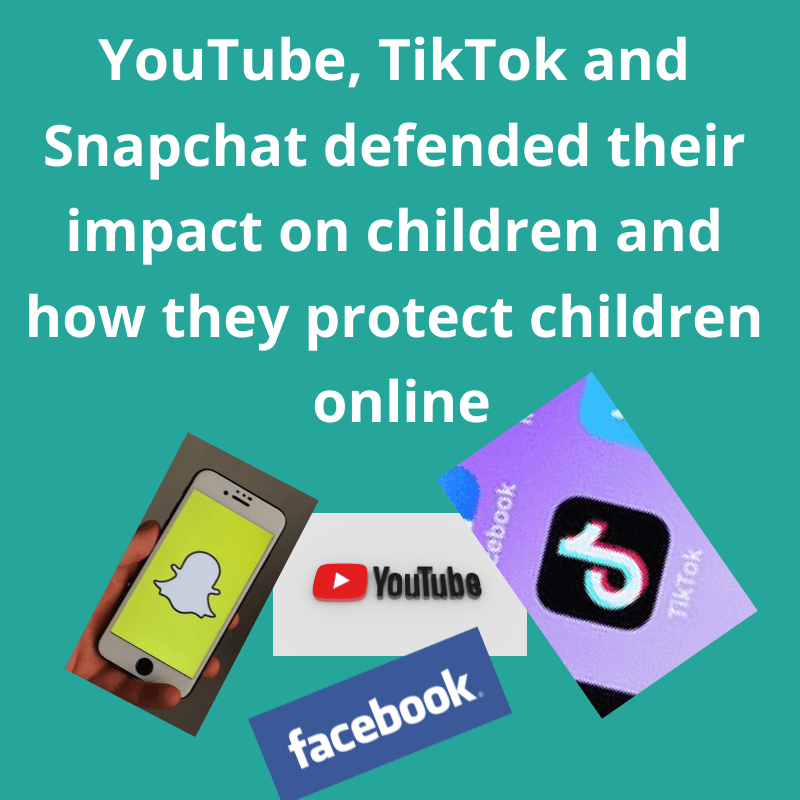In their debut testimony to U.S. senators, video-sharing app TikTok and photo-sharing network Snapchat argued that their platforms are designed to safeguard users from the mental health and safety hazards associated with social media.

YouTube, TikTok and Snapchat, three social media sites with a large number of young users, tried to persuade wary US senators on Tuesday 26 October 2021 that they are secure, as concern about Facebook’s potential effects spreads to other platforms.
In their debut testimony to U.S. senators, video-sharing app TikTok and photo-sharing network Snapchat argued that their platforms are designed to safeguard users from the mental health and safety hazards associated with the use of social media.
Executives from all three tech companies agreed to share internal research on how their products influence children, a topic that has risen to the forefront in recent weeks as a whistleblower exposed tens of thousands of pages of Facebook’s internal documents.
Despite their prominence and Congress’s rising focus on internet industry policies, TikTok and Snap, the parent firm of Snapchat, were both speaking before the legislative body for the first time. In comparison, Facebook executives have testified 30 times on Capitol Hill in the last four years, while Twitter executives, including CEO Jack Dorsey, have testified 18 times.
The CEOs from TikTok and Snap were humble and admitted that they needed to do more to defend their services. Michael Beckerman, TikTok’s VP and head of public policy, said the company is attempting to “keep its platform secure and deliver age-appropriate experiences,” but that “trust must be earned.”
“We’re trying to gain trust by doing more, being more transparent, and being more accountable, as well as having the humility to learn and improve,” Beckerman added.
Snap’s VP of global public policy, Jennifer Stout, said the business is working on new tools for parents to better monitor how their children use the app. “We have a moral responsibility to consider our users’ best interests in all we do,” Stout said, “and we recognise that there is more work to be done as we look to the future.” “We believe regulation is vital, but given the varying rates at which technology advances, regulation alone will not enough.” She continued, “Companies in the technology industry must take responsibility for the communities they serve. If they don’t, the government will have to take action to hold them responsible.”
While Google, the parent firm of YouTube, has testified before Congress before, this was the first time executives from Snap and TikTok did so, and they came prepared to set themselves apart from the social media behemoth embroiled in yet another scandal. Senators pursued these hearings as a result of Facebook whistleblower Frances Haugen’s leaks. The event was overshadowed by the Facebook Papers, reinforcing Snap and TikTok’s desire to stand out and promising Congress increased transparency into their own research and algorithms. Despite being smaller than Facebook, both TikTok and Snapchat platforms are seen as particularly appealing to younger consumers.


